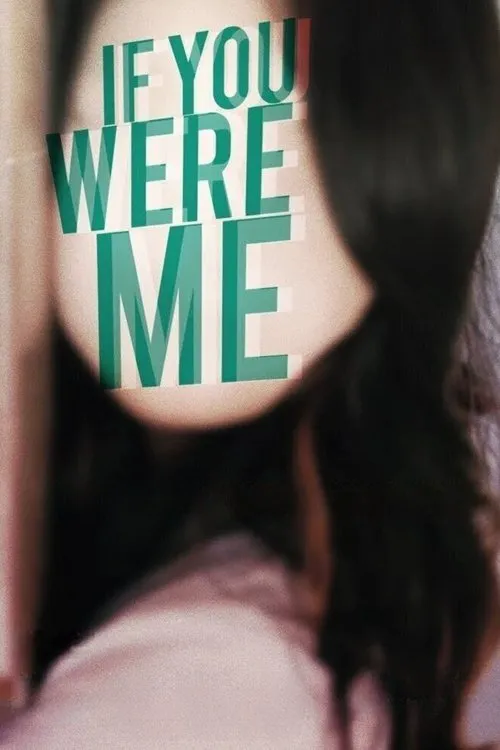If You Were Me

Trama
"If You Were Me" is an anthology film comprised of six short stories, crafted by prominent Korean directors. Each filmmaker offers a distinct perspective on the complexities of modern Korean society, tackling themes as varied as racial prejudice, the exploitation of immigrant workers, paedophilia, sexism, disability rights, and the commodification of children. The film opens with Park Chan-Wook's segment, "To Sir, with Love." Set in present-day Korea, Park tells the story of a Nepalese woman named Bhubeswari, who struggles to survive in a foreign land. Aided by Park's trademark black humor and social critique, the director skillfully navigates the nuances of racism and xenophobia. Bhubeswari, the protagonist, is forced to take on a demeaning job, scrubbing floors and doing menial tasks for Korean nationals. The segment expertly highlights the dehumanizing effects of economic exploitation, where workers are viewed as nothing more than replaceable units of labor. As Bhubeswari grapples with the indignity of her circumstances, she finds a fleeting sense of dignity in small acts of defiance and resistance. Park's segment serves as a powerful commentary on the systemic injustices that Korean society perpetuates against its immigrant workers. The next segment, "The Ballad of White Eyebrows," is directed by Jeong Jae-Eun. It revolves around a paedophile who has been released from prison and attempts to integrate back into his community. The film delves into the complex psychological dynamics at play as the protagonist navigates the challenges of rehabilitation. Through a nuanced portrayal of its character, Jeong Jae-Eun invites empathy for even the most heinous of actions, raising questions about the morality of punishment and the difficulty of reintegrating into society. The segment effectively captures the isolation and shame that accompany the stigma of paedophilia, underscoring the need for compassion and understanding in addressing the root causes of such behaviors. Yeo Gyun-Dong's "Kim Moon-Joo: The Art of Protest" is a biographical segment that tells the story of a disabled Korean actor who, in the 1970s, staged a memorable protest against social injustices. With the help of Yeo's deft direction, Kim Moon-Joo's remarkable tale unfolds, highlighting his unwavering dedication to advocating for the rights of people with disabilities. The film masterfully interweaves archival footage, newsreels, and interviews with those who knew Kim, to create a poignant portrait of a courageous figure. The segment not only showcases the strength of one individual's conviction but also underscores the importance of activism and its potential for driving social change. Im Soon-Rye's contribution, "The Man of a Thousand Faces," offers a biting satire on the entrenched sexism of Korean men. By way of a mock job interview, the director skewers the absurdly outdated and chauvinistic attitudes that persist in modern Korean society. The film effortlessly balances humor and social commentary, critiquing the systemic barriers that women face in their pursuit of equal opportunities. The protagonist, a man who sees himself as "liberated" and progressive, exemplifies the absurdity of male privilege, as he struggles to navigate the expectations placed upon him by societal norms. With a wink to feminist theory, the director masterfully exposes the performative aspect of masculinity, revealing how the masks men wear serve to maintain the status quo. Park Jin-Pyo's "Egg Man" takes a haunting approach, focusing on a disturbing trend in which underprivileged children are forced to undergo oral surgery to improve their English speaking abilities. The practice is tantamount to child trafficking, with children being exploited for financial gain. Park Jin-Pyo skillfully portrays the emotional cost of this practice, highlighting the commodification of vulnerable individuals. By depicting the complex emotional landscape of the children and their families, the director sheds light on the human cost of economic inequality. The segment masterfully juxtaposes the stark, almost industrial process of oral surgery with the more intimate and emotional experiences of its young subjects. In conclusion, "If You Were Me" is an exemplary anthology film, one that showcases the versatility and innovative storytelling of Korean cinema. By tackling some of the most pressing social issues of the day, the contributing directors demonstrate an unwavering commitment to social commentary. Each segment, whether humorous, somber, or unsettling, serves as a testament to the diversity of Korean filmmaking and its ability to spark meaningful discussions on human rights and social justice.
Recensioni
Raccomandazioni




